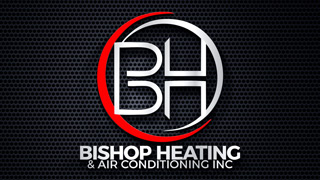
Major changes are coming for the heating and cooling business! Cooling systems transitioning from R-410a to newer refrigerants like R-454B refrigerant and R-32 refrigerant will be coming in 2025. These new coolants are engineered to be better for the environment and comply with revised regulations about global warming. But what does that mean for your existing HVAC system and future services?
This change will decrease the environmental footprint of our air conditioning systems. Starting with 2025, new AC systems will utilize an alternative class of refrigerants that more closely match with climate goals. If you're thinking about getting an AC replacement soon, this is the ideal time to explore how these updates can influence your home's comfort.
Why Are They Phasing Out R-410a for New HVAC Refrigerant?
For years, R-410a was the preferred refrigerant for residential air conditioners because of its efficiency. But studies showed that R-410a still contributes to global warming. Because of this, the Environmental Protection Agency (EPA) enacted an initiative back in 2021. The industry will progressively eliminate R-410a to make room for refrigerants that are more environmentally friendly.
The HVAC industry has made changes like this before. When the industry switched from using R-22 (commonly called Freon) to R-410a, residents like you had to follow suit. And just like then, this change will affect how systems are constructed as well as the best practices for HVAC maintenance. Both residents and HVAC technicians must prepare for these new refrigerants if they want to keep experiencing the most reliable, most cost-effective cooling possible.
Which New Refrigerant Is Replacing R-410a?
The new batch of refrigerants fall under the new "A2L" classification and contain the newest R-454B refrigerant and R-32 refrigerant coolants. They're designed to provide the same effective cooling while significantly reducing their global warming potential (GWP) compared to R-410a.
R-454B refrigerant is expected to be especially efficient due to its GWP being around 78% less than R-410a. Although R-454B refrigerant is actually more flammable than R-410a, improvements to system configurations and maintenance practices will ensure servicing is just as safe to perform. In addition, today's cooling systems using R-454B refrigerant are considerably more energy efficient, resulting in considerable savings on energy bills over time, especially if you keep up with routine HVAC maintenance.
This switch isn't only about substituting the refrigerant—it impacts the whole HVAC system because the properties of R-454B refrigerant make it incompatible with older systems. In time, every residence and business using R-410a will need to upgrade to one of the new systems.
R-410a Replacement: What Do I Need to Do to Switch to New HVAC Refrigerants?
Changing to the new refrigerants won't be as straightforward as replacing what's used in your home's HVAC system. That's because the unique properties of R-454B refrigerant and R-32 refrigerant mean you can't use the new refrigerants in a system designed to use R-410a. But don't be concerned—you can continue to use your current R-410a system for now. Just be aware that as time progresses, the price of repairs and tune-ups will increase as R-410a becomes scarcer.
Anticipating the changes is the optimal way to manage things. If your AC system is already nearing the end of its lifespan, this is the ideal time to think about upgrading to a newer model that uses the new R-454B refrigerant. Plus, the staff here at Bishop Heating & Air Conditioning can support you with switching with flexible options for HVAC replacement financing.
What Type of Cooling Refrigerant Is in My HVAC System?
Not sure which refrigerant your AC system uses? In general, you can easily learn this information by checking the label on your outdoor unit. This label indicates the type of refrigerant, the model number and numerous other specifications about your cooling system.
But if you are unable to decipher the label or can't find your user manual, don't stress! You can always call one of the expert technicians at Bishop Heating & Air Conditioning to assist you in determining this information. Get all the info you need by giving us a call at 760-784-9034.
